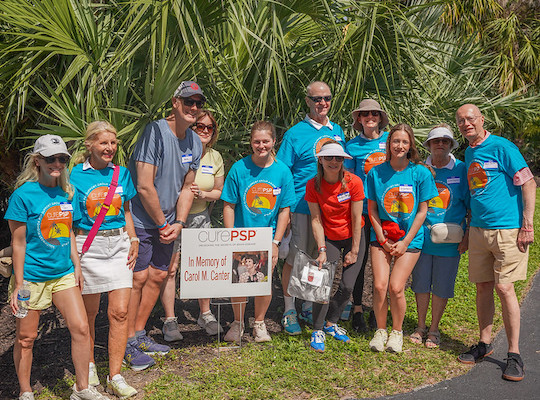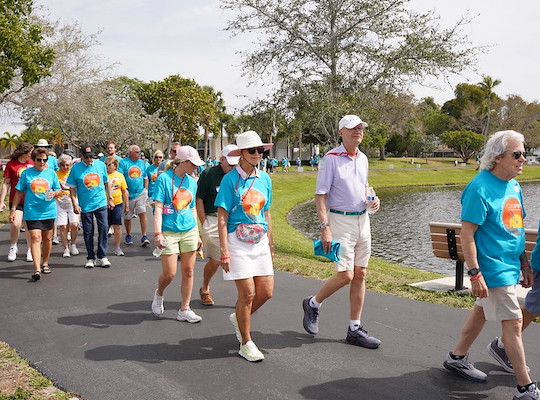CurePSP Awards Seven New Research Grants
Jul 29, 2019 By Sabrina Da Rocha

NEW YORK–(July 29, 2019)–CurePSP, the foundation for prime of life neurodegeneration, has awarded grants to scientific research into progressive supranuclear palsy (PSP) and related diseases totaling more than USD 200,000.
The funding includes two Venture Grants totaling USD 190,000 and five student grants of USD 3,000 each.
“Although PSP is rare, it is of great scientific interest to the field of neurodegeneration research and we are pleased to be able to provide these grants,” said Lawrence I. Golbe, MD, CurePSP’s Director of Scientific Affairs and chair of its Scientific Advisory Board. “We are also encouraged in seeing the interest that students have in PSP, which is a positive indicator for the future of research into neurodegenerative disorders, which is one of the leading healthcare challenges of the 21stCentury.”
PSP is a neurodegenerative disease in which cells in some areas of the brain accumulate clumps of a protein called tau and gradually die off. Those cells control walking, balance, mobility, vision, speech, swallowing, sleep, and behavior. Five to six people per 100,000 are living with the disease, which is currently incurable.
A Venture Grant of USD 90,000 was awarded to Dr. Maria-Elena Avale of the Institute for Research in Genetic Engineering and Molecular Biology, Buenos Aires, Argentina, for her study, “Dissecting neuronal dysfunction under 3R:4R isoform imbalance.” This project will use novel genetic techniques to create brain cells with the imbalance of 3-repeat and 4-repeat tau that exists in human PSP. It will then use this new PSP model to examine how this imbalance affects transport of compounds through the cell, calcium release, and the electrical properties of brain cells, all of which are suspected to be relevant to the damage in PSP.
Another Venture Grant of USD 100,000 was awarded to Dr. Gal Bitan of UCLA who will study “Biomarkers in brain-derived blood exosomes for improved PSP diagnosis.” This research will measure the relative abundance of various types of tau in brain-derived exosomes in blood from patients with PSP and other diseases as comparators. Exosomes are tiny balloons that pinch off from brain cells, contain some of the chemical contents of their parent cells, and can be detected in tiny numbers in the blood. This work could provide a new diagnostic test for PSP.
CurePSP’s Venture Grants program provides seed funding for investigators seeking proof of concept on their innovative ideas. With success, this research may qualify for additional funding from the government or other private sources.
CurePSP also awarded five student grants, funded by a bequest from the estate of Paul D. and Ruth T. Urso. The grants were awarded to:
Kyle Anthoney of Humboldt State University, Arcata, CA, will use a new technology called neural sphere culture to determine which of the cells’ various clearance mechanisms goes wrong in the process of tau protein accumulation in a PSP stem cell model.
Dixie Blumenshine, also of Humboldt State University, will assess the ability of microRNA-132 to promote breakdown of abnormal tau protein by autophagosomes in brain cells.
Kathryn Cooper of Stony Brook University will analyze MRI images from PSP and normal pressure hydrocephalus to seek formal criteria to distinguish to two diseases.
Gabriella King of the University at Buffalo will determine the degree to which a mouse model where certain neurons in the brainstem are lesioned replicates the pathology of PSP.
Katherine Perks of the University of Texas at Austin will work with C. elegans to find a genetic manipulation to treat the tendency of that tiny worm to “freeze” after having its dopamine depleted experimentally.
About CurePSP
CurePSP is the nonprofit advocacy organization focused on progressive supranuclear palsy, corticobasal degeneration and other prime of life neurodegenerative diseases. This spectrum of fatal brain disorders that often strike during a person’s most productive and rewarding years. Currently, there is no effective treatment or cure for these diseases, which affect more than 150,000 people in the U.S. alone. Since it was founded in 1990, CurePSP has funded more than 190 research studies and is the leading source of information and support for patients and their families, other caregivers, researchers and doctors, and allied healthcare professionals. CurePSP is based in New York City. Please visit www.curepsp.org for more information.
Join our email list
Get the latest news and resources
directly to your inbox.
Get the latest news and resources directly to your inbox.
Sign Up

.jpg)

